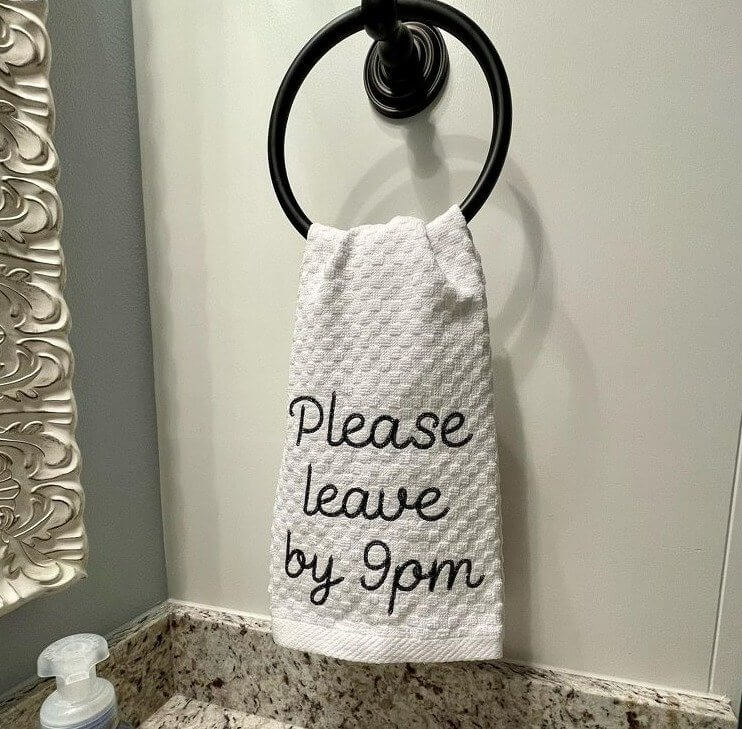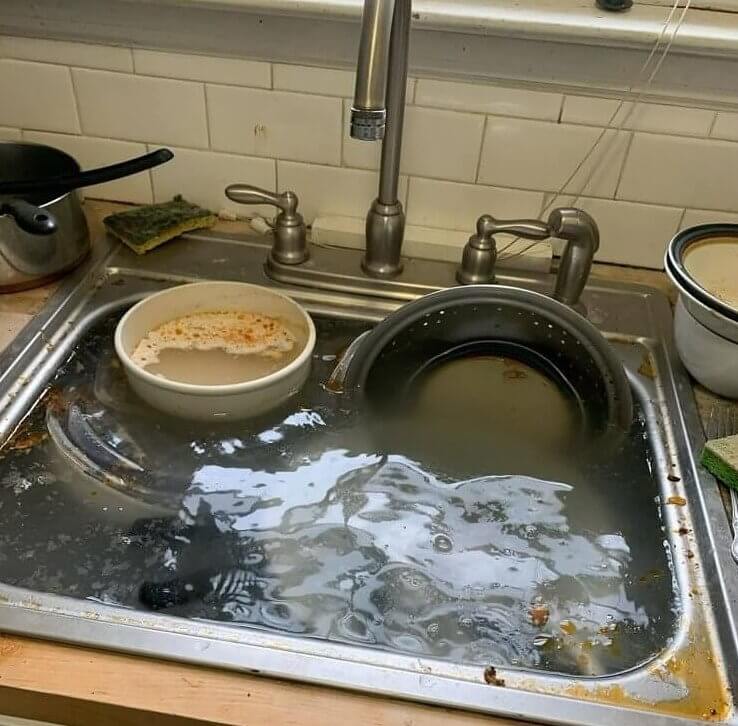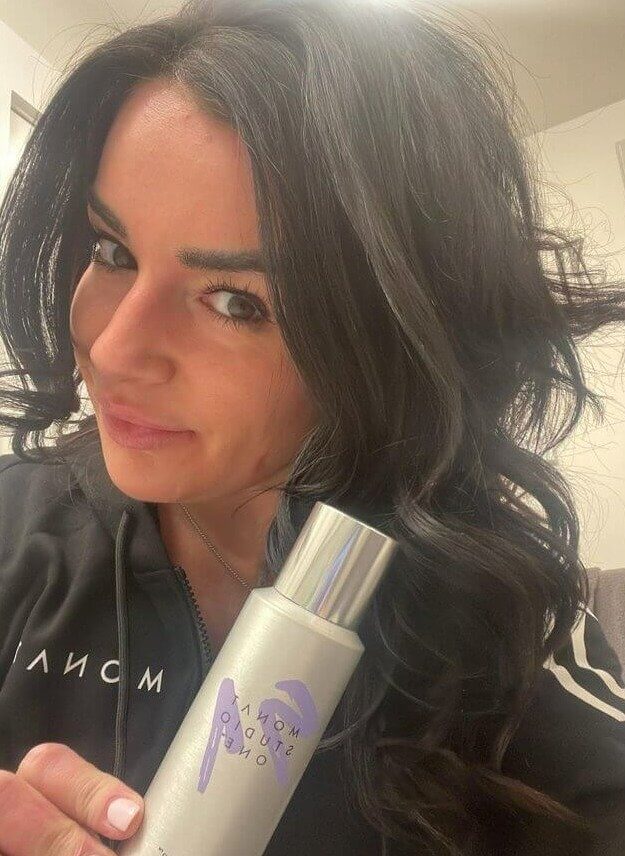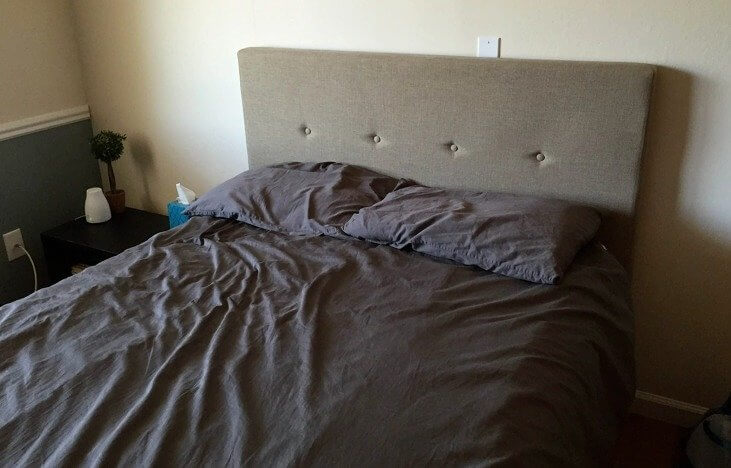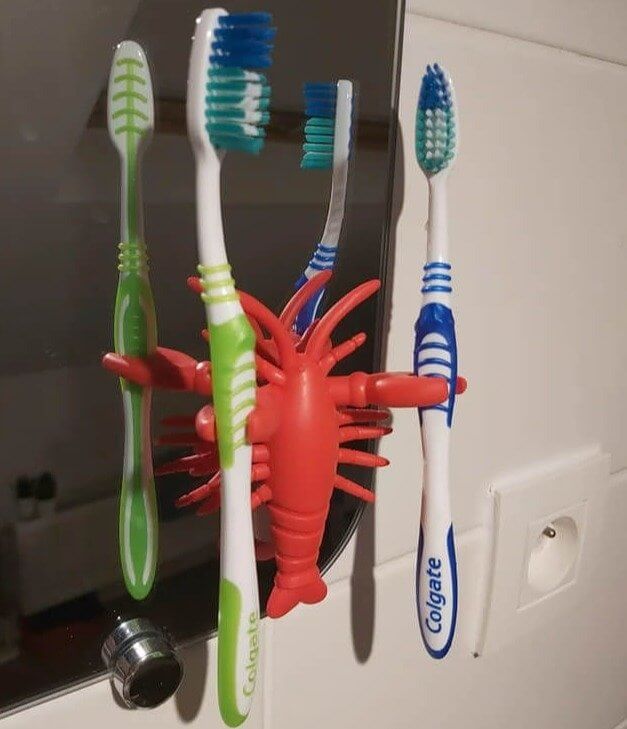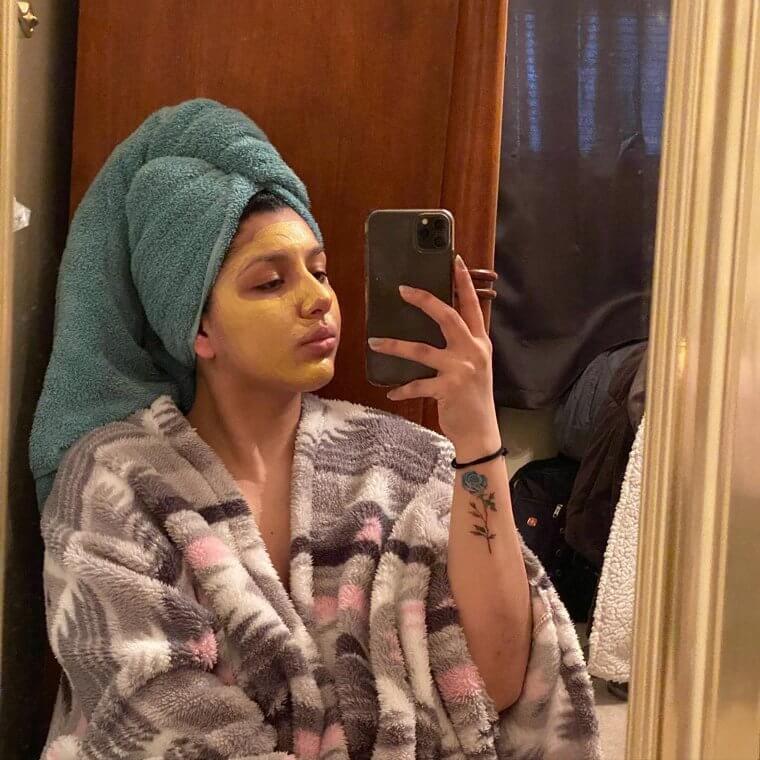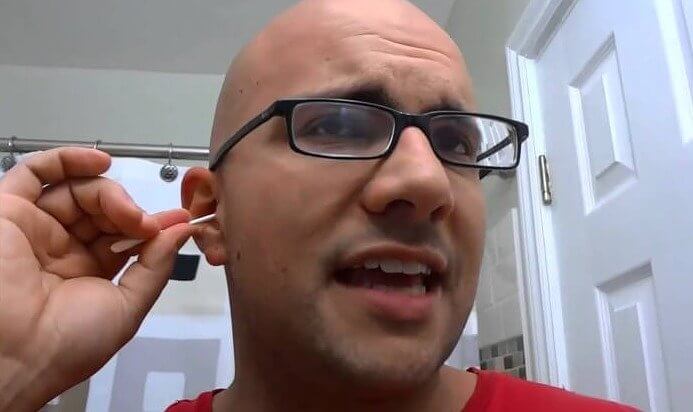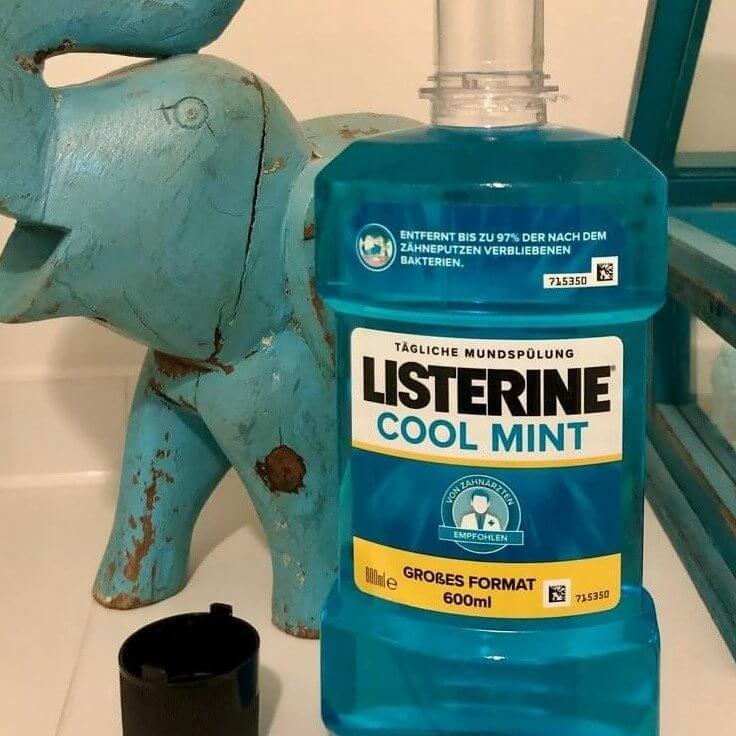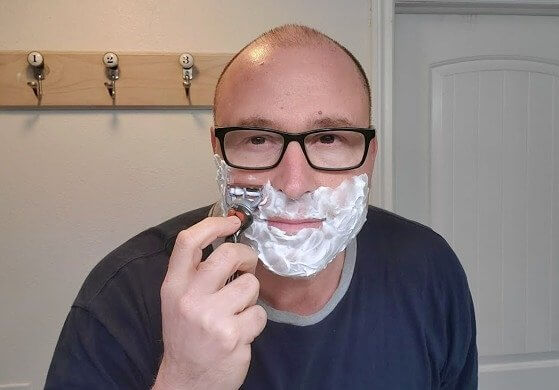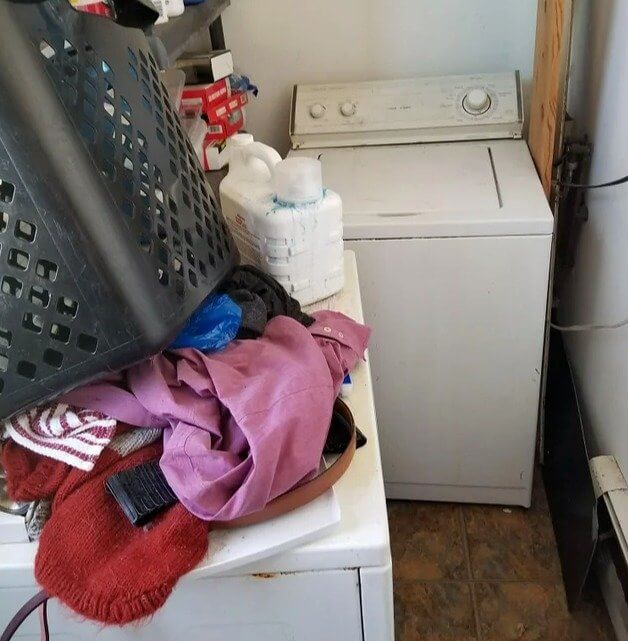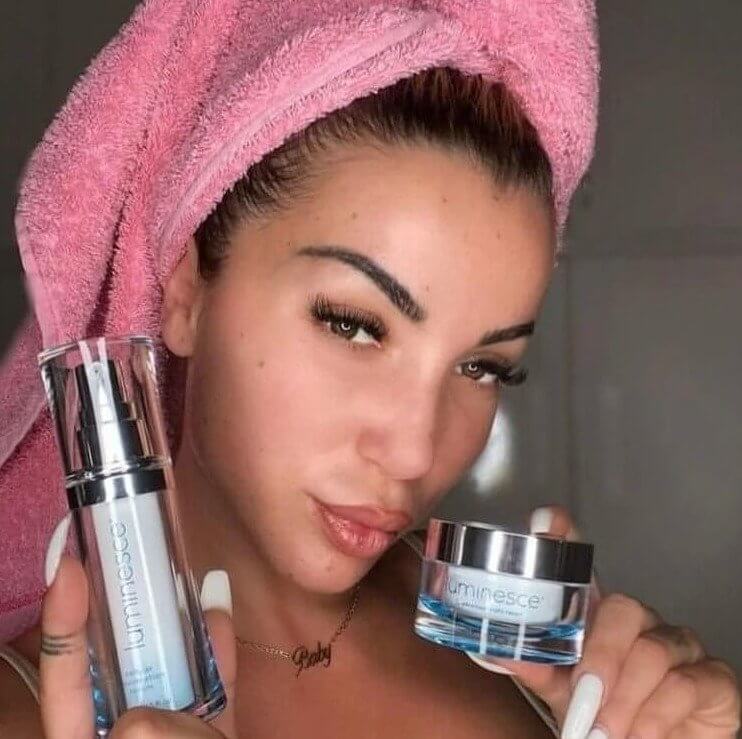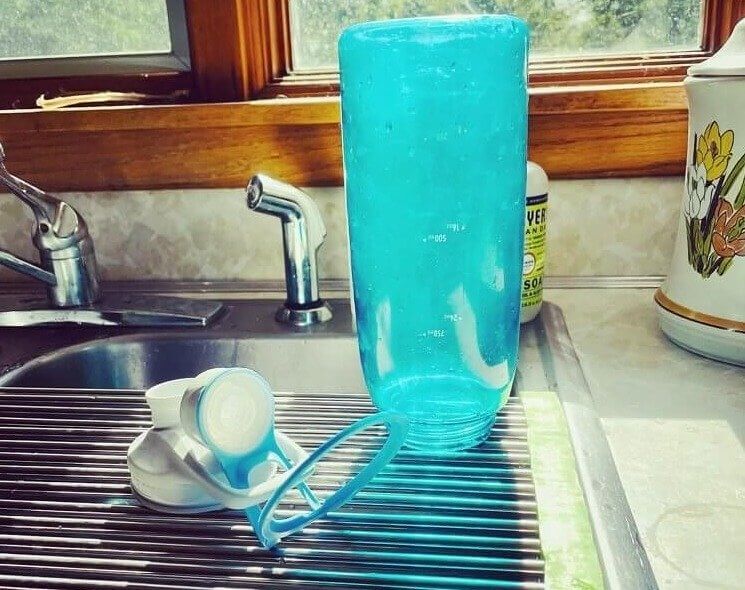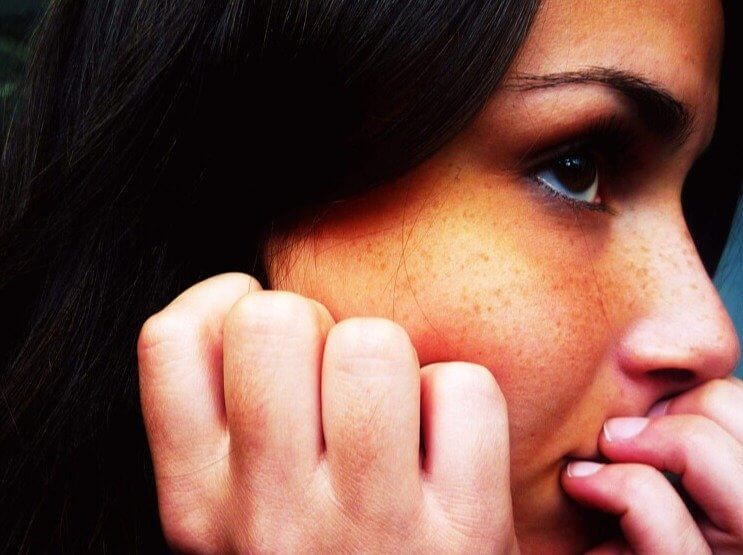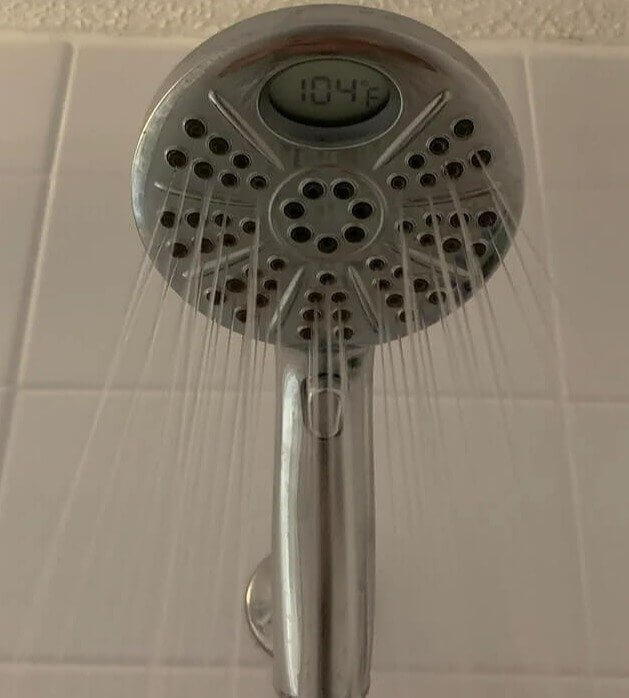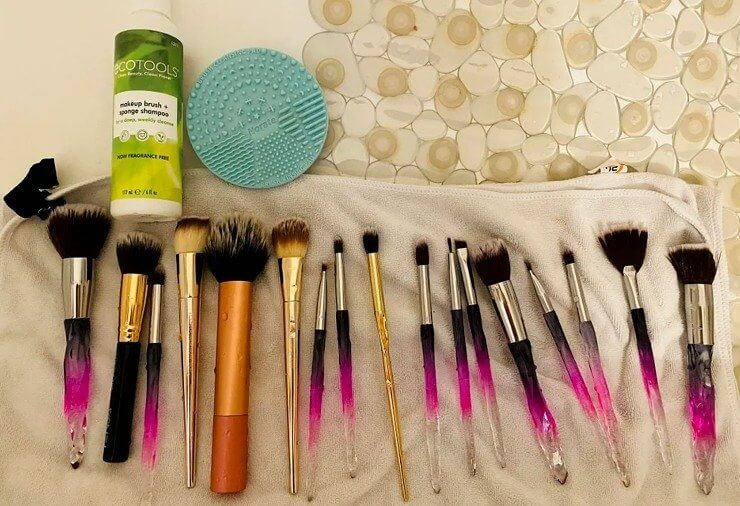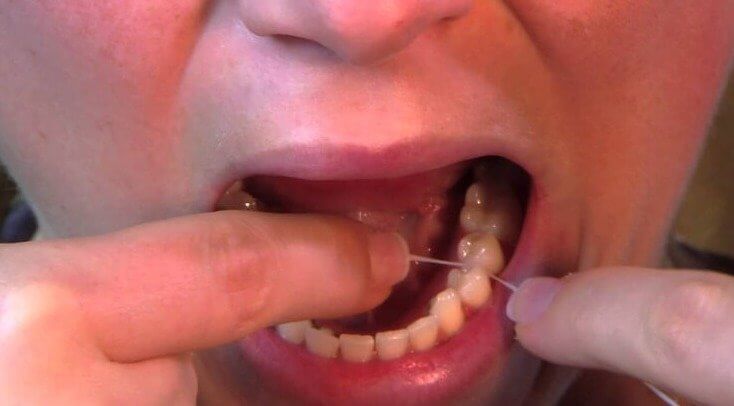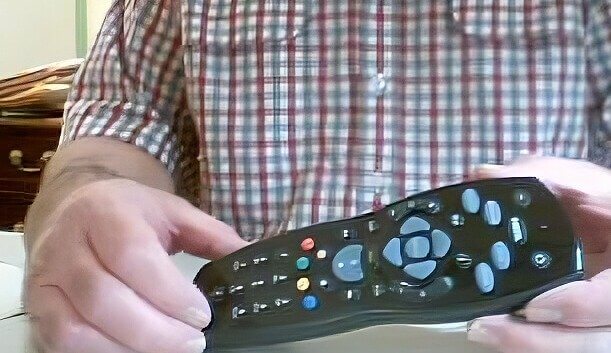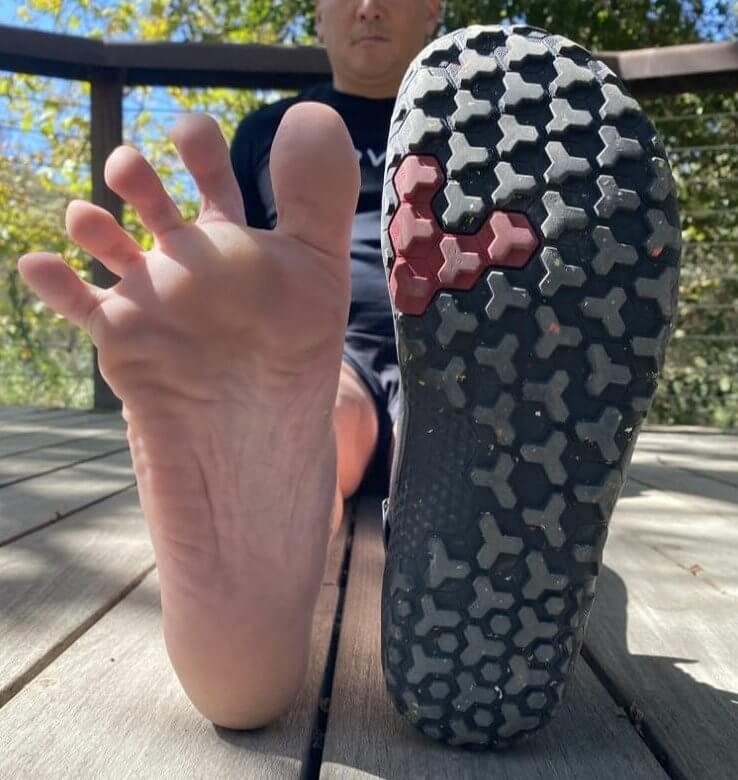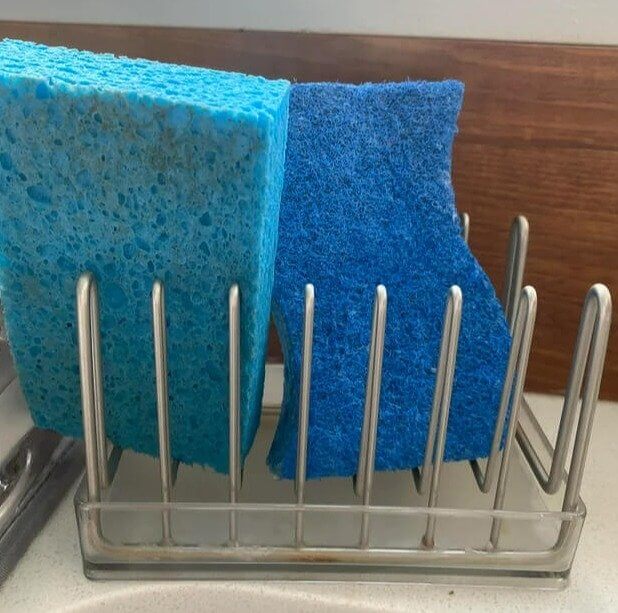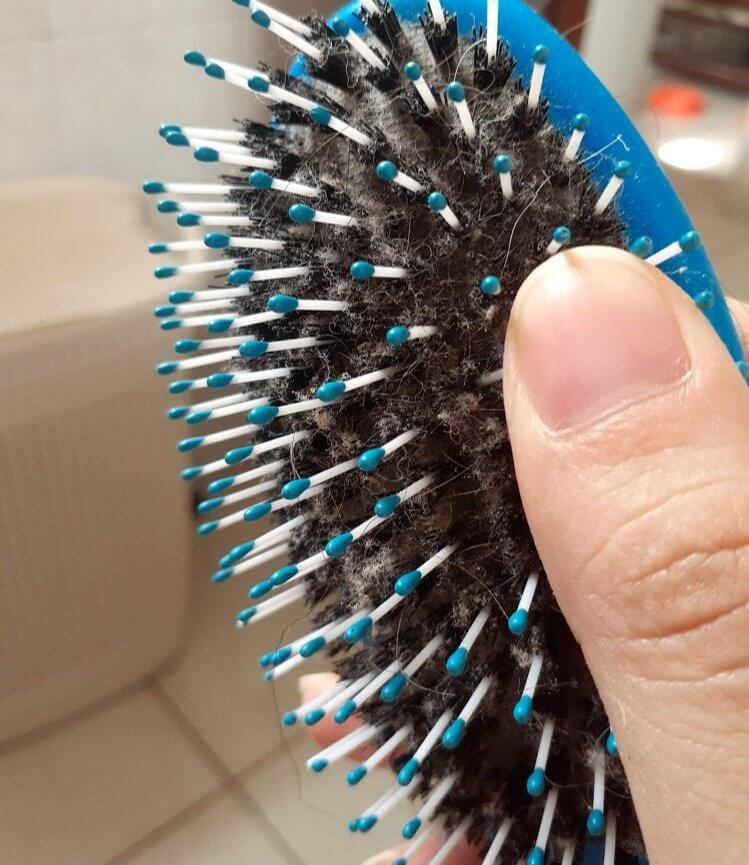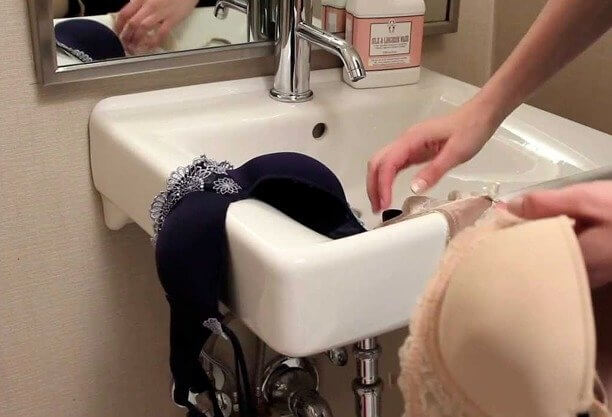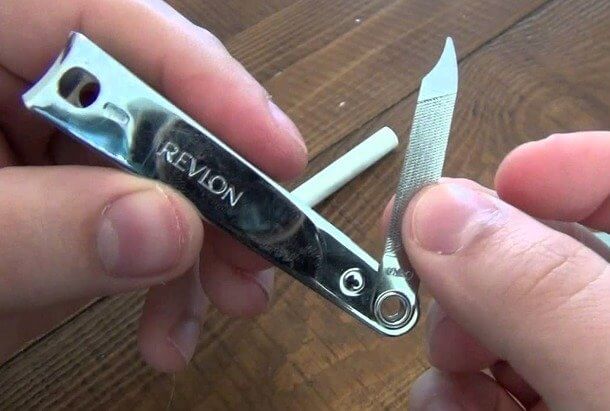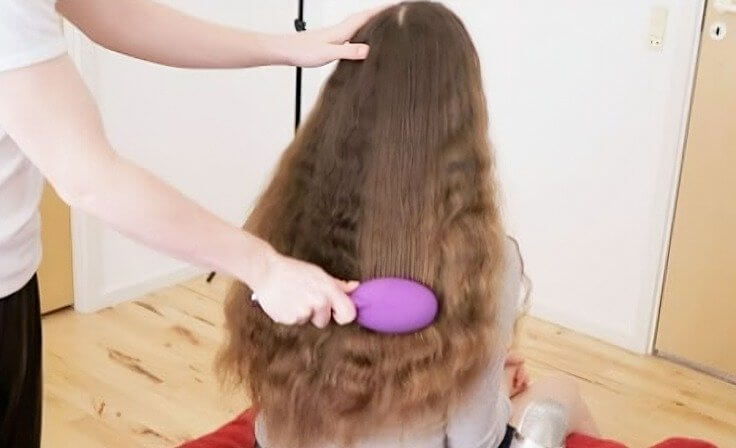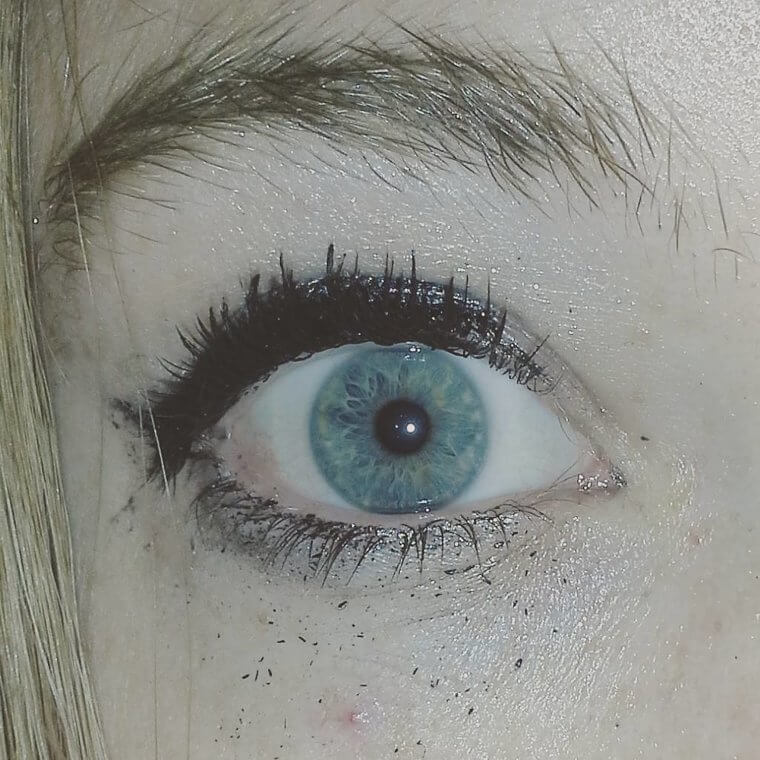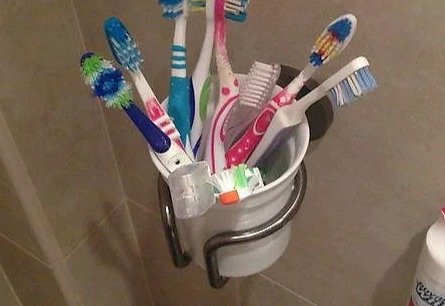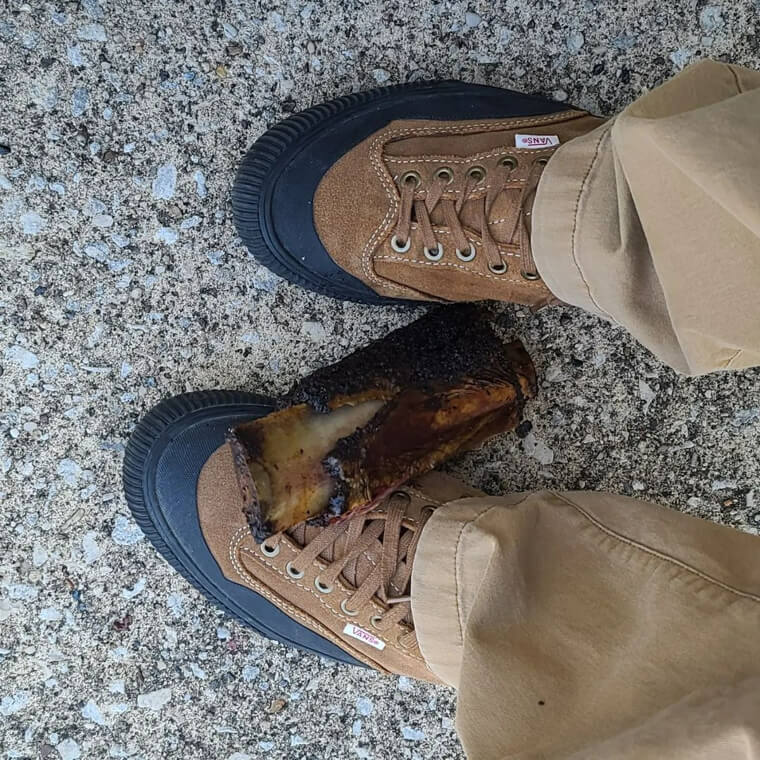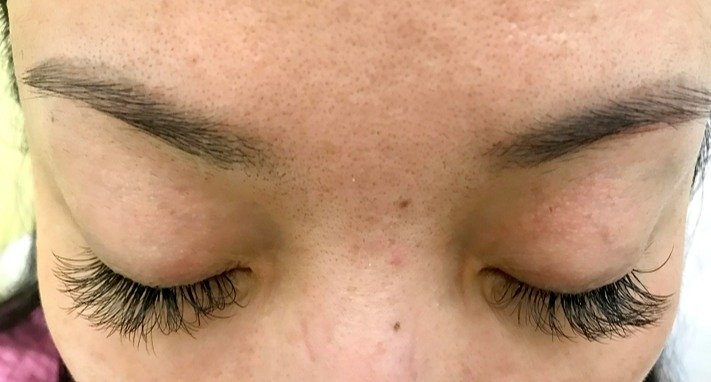Most of Us Aren't Brushing Our Teeth Long Enough
While most people know how many times a day they should brush their teeth, many people don't know how long they should brush each time. Unfortunately, many of us aren't brushing long enough during each session. The rule of thumb is that you should brush your teeth for at least two minutes. Not hitting two minutes increases your chances of plaque buildup, gingivitis, and even some types of mouth cancers in extreme cases.
So, it's better to be on the safe side and brush for more than two minutes at least twice daily. Also, don't forget to floss beforehand (but we'll talk about that more later).
Continuing to Use the Same Towel After More Than a Couple of Uses
Reusing towels is a pretty common practice among most people. And while it's not that bad to reuse a towel a few times, you should really be washing it after a couple of uses at most. So if you're sticking them in the laundry bin once a week, you might want to up that. Towels are much dirtier than they look and are also a perfect breeding ground for bacteria, especially when wet, which brings us to our next point concerning towels.
You should always try and remember to hang your towels up in order so that they can dry properly. Bacteria love damp towels, and the sooner they dry, the harder it is for bacteria to multiply.
Sleeping in Your Underwear
It's not bad to occasionally sleep in your underwear, but it can be harmful to sleep in your underwear every night. Sleeping in underwear or pajamas can trap moisture in sensitive areas, which isn't good for your skin. So, it's preferable to just sleep without clothes most of the time and give your body a chance to breathe. That said, there is one caveat to this one that most people should take into account.
Overall, you should sleep however you are most comfortable. It's ultimately much better for you to simply get a good night's sleep than to potentially over-worry about your skin.
Soaking Dishes in The Sink
This one might sometimes be unavoidable, but it's important not to leave your dishes soaking in the sink for too long or to constantly soak them after every meal. When you leave dishes soaking, you're giving bacteria a place to thrive. Instead, try washing dishes shortly after you finish eating when your pots and pans are still warm, and leftover bits are much easier to remove or toss in the trash.
When you do leave your dishes soaking, you should always clean and scrub your sink with soap and water after you finish washing everything to eliminate any lingering bacteria.
Washing Your Hair Too Often Damages Your Hair
If you wash your hair every day, then the odds are high that you're washing too often. Most people's hair isn't meant to be washed daily, especially with harsh shampoos. This can damage your hair and strip it of its natural oils. So, it's best for most people if they don't wash every day. Of course, how many times you should wash depends on what kind of hair you have.
Luckily, it's fairly easy to look up your hair type and get a sense of how often you should wash. And there are some people whose hair does require washing every day.
Not Washing Your Hair Enough Can Lead to Bacteria - It's About Balance
While washing your hair too much is an issue, not washing it enough is probably more dangerous. That's because not washing your hair enough (or not washing it at all) can cause bacteria to accumulate on your scalp and get down into your hair follicles. This can lead to things like rashes and even infections if you're not careful. Not washing your hair enough can also cause it to smell.
Of course, the optimum number of times you should wash your hair depends on your hair type. But on average, most people shouldn't go more than two, maximum three, days without washing their hair.
Using Harsh Soaps In Sensitive Areas
It might seem like a good idea to scrub your entire body with soap, but sometimes the soap and body washes we get from the store contain harsh chemicals. These chemicals are usually pretty safe for most parts of our bodies, but they can upset our natural chemical balances, such as Ph levels, in more sensitive areas. That's why it's better to find less harsh soaps for those sensitive areas or ditch the soap altogether and use only water.
Nowadays, there are many different soap options that are healthier for sensitive areas. But be wary of ones marketed specifically for sensitive areas - they are not always as healthy as they appear to be. Going for something natural and light is probably your best bet.
Are You Washing Your Sheets Often Enough?
We admit that washing sheets regularly can be a chore, but you should wash your sheets at least once a week if you want to keep things truly clean. If that number surprised you, you're not alone; most people don't hit this mark. For example, a recent study found that half the single men in the U.K. wait about a month or longer to wash their sheets. And that's really too bad since other studies have shown that fresh sheets improve sleep patterns - one more reason to wash regularly.
We also spend a lot of time sleeping, and when we sleep, we sweat, meaning that it's kind of unsanitary to wait too long between washes. It's almost like wearing dirty clothes every day.
Storing Toothbrushes Near Toilets
The show Mythbusters proved years ago that storing your toothbrush next to your toilet probably wasn't such a great idea, but a lot of people still haven't heard about this. Every time you flush your toilet, it throws tiny particles up into the surrounding air, and some of those particles land on your toothbrush. So, you're better off keeping your toothbrushes at least six feet away from your toilet or stored away.
You can even cover them with something like a paper towel when you're not using them; just be sure to use a new piece every other day or quite regularly.
Not Drying Your Body Well Enough Post-Shower Can Cause Bacteria and Fungal Growth
Sometimes, especially if you're late for something, you might do a quick dry-off with the towel and then quickly get dressed. However, this is less than ideal, and it's worth drying off thoroughly before getting fully dressed - even if it means being a few minutes late to something. This is because not doing so traps moisture and can lead to bacteria growth or even fungal growth in more sensitive areas. These, in turn, can lead to rashes and other undesirable side effects.
So, it's best to dry down as best as you can, and even air dry afterward if you have sensitive skin that prevents you from drying too vigorously, though the latter isn't necessary for most.
Not Cleaning Your Keyboard - Think About How Much You Touch It!
While most of us might think only about our phones when cleaning our devices, we should also consider other devices we spend a lot of time touching, such as computer keyboards. Even if your keyboard doesn't look very dirty, you should wipe it down regularly with a disinfectant wipe to ensure there aren't any germs on your keys. After all, most germs and bacteria are invisible to the naked eye.
It's also a good idea to buy an air duster, which is sold at most stores that sell electronics, to get rid of anything lurking underneath the keys. You'd be surprised to see how much dirt comes out of a "clean" keyboard!
Cleaning With Q-Tips
The prevailing wisdom used to be that you should clean your ears regularly with Q-Tips. However, today we know that's not true. In fact, cleaning with Q-Tips or cotton swaps can actually be damaging to your ears as it pushes and packs in your earwax. This can increase your body's natural production of earwax and even lead to slight hearing loss due to so much wax being packed in so tightly.
Most experts suggest you only use Q-Tips to clean around the outside of your ears and use a damp towel to clean slightly inside after each shower.
Many of Us Are Using Too Much Mouthwash
This is another one that most people don't think about too often, but it's actually not great to wash your mouth with mouthwash too frequently. Overusing this product can be harmful to your dental hygiene. That's because mouthwash kills both the bad and the good germs/bacteria. Plus, using it too often might cause your mouth to become excessively dry or damage the enamel of your teeth. So how frequently should you use it?
You shouldn't be using mouthwash more than twice a day. In fact, unless using it twice a day is recommended by your doctor or dentist, most of us are good to go using it just once a day.
Overusing a Razor
Razors tend to go dull fairly quickly, but even if you have a strong razor that doesn't go dull, you might be overusing it without realizing it. It's important to remember that razors build up dead skin cells and hair after each use, so even if you're razor still has somewhat of an edge, it's still preferable to switch to a new one. It'll also offer a cleaner shave.
If you're concerned about using too many razors, then it might just be time to switch to a reusable razor altogether or go with an old-school single-bladed razor. Just make sure to clean those regularly!
Leaving Dirty Clothes Sitting in the Laundry Bin
It's not great to leave your dirty clothes and linens sitting in the laundry basket for too long. They'll (eventually) be washed, sure, but the longer you let them sit there, the more time bacteria have to fester and multiply. And that's going to mean that you have a basket filled with bacteria just sitting in your home that could potentially contaminate other parts of your house or apartment.
It's also a good idea to wipe down your basket with a disinfectant every now and then, or if it's cloth, to give it a wash with your other clothes and linens.
Constantly Wearing Acrylics
Constantly wearing acrylic nails without letting your nails have a break in between can be terrible for them. Not only does it worsen the condition of your nails, but acrylics also tend to store bacteria. And considering how often we touch things - including our faces and food - with our hands, that's pretty gross to think about. Most places recommend keeping your acrylic nails on for about two to three weeks.
When it comes to taking breaks, some places recommend that you take a break from acrylics after about three months, but if you see signs of wear and tear, this can obviously be moved forward.
Not Wiping Down Your Phone Enough
This one shouldn't come as that much of a surprise for most people, but we often forget to clean our phones as much as we should. We interact with our phones more than probably any other item in our home. This means that we're constantly touching them and getting dirt and bacteria all over our screens. Most places recommend that you clean your phone at least once a day.
It's usually pretty safe to clean most phone screens with disinfectant wipes, but if you're worried that you might damage your screen, you can always search online to make sure whatever brand wipe you're using is safe.
Over Moisturizing Can Be Just as Bad as Under Moisturizing
Not many people think about this one, but sometimes moisturizing too often can be just as bad as not moisturizing enough. Yes, you should moisturize, but you should do it moderately so that your skin has time to actually breathe and so that you aren't clogging up any pores. Most places encourage people to moisturize twice a day - once in the morning and once at night.
But if you start to notice some odd symptoms, you should pare it back. For example, if you notice that your skin is becoming extremely dry, if you're having breakouts, or if you're noticing clogged pores, these could all be signs that you're moisturizing too much for your skin type.
We Should Be Washing Our Reusable Water Bottles Daily
You may not think of your water bottle the same way you might think about a glass or cup. After all, the only thing you're storing in there is water, right? Well, your mouth still touches the top of the bottle regularly, and bacteria can still grow in water, so it's best to wash your bottle frequently. In fact, some experts recommend that you wash your water bottle after every use.
If that seems like too much, we're pretty sure you could get away with just washing it daily, especially if you tend to find yourself out and about during the day. But washing your water bottle every day is really the minimum requirement.
We're All Touching Our Faces Way Too Much
Similar to when we touch our phones, constantly touching our faces can spread bacteria and oils all around. This can lead to things like breakouts, which is why it's important to be aware of when you're touching your face and if you're doing it too often. Many of us also rest our heads and faces on our hands, leading to unwanted bacteria on our faces, including in our eyes, noses, and mouths.
So, if you've noticed random acne showing up, then there's a possibility that you're touching your face too much. It's also a good idea to wash your face daily with a cleanser.
Not Dusting and Disinfecting Your Office
Most people don't often think of their office as a living space, which can sometimes lead to it getting a bit messier than it would if they thought of it as a second home. We're not saying you should necessarily think of your job or office as a second home (which would be kind of depressing), but we are saying that you should make sure it's just as clean as you'd want your own home.
The reason for this is that there are just as many bacteria hanging in an office as would be hanging around a dirty room. In fact, there's probably more, considering more people come in and out of offices.
Hot Showers Are Bad for You
Many of us have heard that taking really hot showers all of the time is actually kind of bad for us, but why is that? Well, hot showers tend to dry out our skin and can even potentially be harmful during the winter if you're stepping out into a freezing cold house or apartment. We know cold showers aren't for everyone, but even using lukewarm water can go a long way.
If you simply can't imagine giving up your scolding hot shower, then try to remember to use a body moisturizer after each shower so that your skin isn't too dry.
We Don't Clean or Wash Our Makeup Brushes Nearly Enough
It might seem like a chore, but cleaning your makeup brushes and sponges regularly is very important. This is because old makeup and even bacteria linger on the brushes, which are then transferred to your face every time you apply makeup. Most places recommend you clean your brushes and sponges around once a week. To do so, just run them under warm water and wash them with shampoo and more water.
This should get rid of any excess makeup while also getting rid of any germs you would've otherwise been reapplying to your face. Just remember to dry your brushes and sponges after washing them.
Not Flossing Daily Is Worse for You Than You Realize
Most of us know that we should also floss when we go to brush our teeth, but that doesn't mean we do it. But the dentists aren't being dramatic - not flossing on a daily basis truly is horrible for your teeth and gums. Flossing ensures no solids are stuck between your teeth and have a chance to wreak havoc or cause plaque buildup and cavities. You should be flossing around twice a day, once in the morning and once again at night.
Most places also recommend that you floss before you brush as it's been found to help retain fluoride. Brushing afterward will also get rid of anything that flossing might've loosened up beforehand.
Television Remotes Need Cleaning, Too
Most people probably clean their TV remotes much less than they clean their phones, yet on average, there are more people touching remotes than a single phone. Because of this, you should clean your TV remotes regularly. A lot of places recommend that you clean them with disinfectant wipes around once a month. However, you should also obviously wipe them down if someone in the household has been sick.
You can also use something like a cotton swap to try and get down between the buttons better and make sure there aren't any germs hiding away in the hard to get to spots.
Walking Around Barefoot Too Much (inside or Outside)
While it's actually not that big of a deal if you're walking around barefoot in nature, as long as you wash your feet regularly, walking around in public spaces or inside your house can be detrimental. Obviously, public spaces aren't usually known for their cleanliness, and people wearing shoes are going to bring in all kinds of things. And walking barefoot in your home can also lead to unwanted bacteria and dirt accumulating on your feet.
This is especially true if you don't mop regularly with some kind of sanitizing product. So, it's best just to wear socks or only walk barefoot right after mopping.
Leaving Kitchen Sponges Uncleaned and Unchanged
We don't often think of our kitchen sponges as being super dirty since their what we use to clean our dishes. However, the truth is that you should be switching or disinfecting your kitchen sponge pretty frequently. The shape of sponges is perfect for attracting and hiding bacteria and even mold. If you want your sponge to last a little bit longer, you can try disinfecting it with soap and hot water.
However, it's usually a good idea to swap out your sponge entirely after a while. Most places recommend swapping out your sponge about every two weeks or sooner if you've noticed it's started to smell.
Not Cleaning Your Hairbrush
We're not talking about just pulling out the hair from your hairbrush on this one, although that is also recommended. But we're talking about actually cleaning your hairbrush to get rid of dead skin cells and any products that might've latched on to your brush. It's actually fairly easy to clean your hairbrush, and all you need to do is fill a bowl with water and shampoo and give your brush a swirl.
Then, rinse it with clean water and let it dry. This should get rid of most of the bad stuff on your brush without you having to go out and buy a new one too frequently.
How Often Do You Wash Your Bras?
While you don't have to wash your bra after every single use, you should still be washing it regularly. Bras can accumulate sweat and dirt just the same as any other piece of underwear, and most places recommend a wash after every two to three uses. Bacteria on bras can even lead to things like skin rashes if they're not washed regularly. Washing them regularly also has another benefit.
Because they're usually made of delicate materials, washing them after every use or after two wears can help them last longer and not be broken down from things like sweat.
Leaving Nail Clippers Uncleaned
While your clipper might not be tarnished with rust (if they are, it's time for a new pair), that doesn't mean that you still shouldn't clean them after every use. That's because whatever was under your nails when you clipped them was probably also transferred to your nail clippers. So, it's a good idea to disinfect them and wipe them down to get rid of things like dirt, germs, skin, and nail particles.
Some places recommend that you put your clippers into a pot of boiling water and then wipe them off with alcohol just to ensure that whatever was under your nails is gotten rid of during cleaning. Of course, remember to rinse them after the alcohol and then dry them.
Sharing Your Brush With Others
We're not saying that occasionally sharing your brush is going to cause you or the other person to become sick immediately, but it is advised that you don't do this too often. When you share your brush, you're basically swapping dead skin cells and old hair, so it's advisable to wash your brush afterward. Again, occasionally doing this isn't all that bad, but you don't want to be doing this every single day.
It's also worth mentioning that sharing a brush also means that you and the other person are swapping whatever products you're using, which might be an issue for someone with a sensitive scalp or hair.
Forgetting to Remove All Eye Makeup
While most people know that they should remove their makeup before going to bed, eye makeup often seems like such a chore because it requires special removers. Still, you shouldn't neglect cleaning off eye makeup, for the simple fact that it's so close to your eyes and can lead to pretty painful consequences if not wiped off properly. These might include things like infections and irritations in and around the eyes.
If you leave mascara on for too long, without properly cleaning it every time, it can even lead to buildups and eventual blindness after long periods of time.
Keeping the Same Toothbrush for Too Long or Sharing Toothbrushes
This one might seem like a no-brainer to some, but you really shouldn't share your toothbrush with other people, not even once. That's because our mouths are one of the dirtiest places on our bodies, and when you share your toothbrush, you're just transferring any germs that might've escaped the mouthwash with the other person. It's also a good idea to buy a new toothbrush regularly, as a lot of reports have shown most people hang on to their toothbrushes past the point of needing a new one.
The Centers for Disease Control and Prevention in the U.S. recommends that you buy a new toothbrush every three to four months or sooner if you notice that the bristles look a little frayed or worn out.
Actually Following the Five Second Rule
Adhering to the five-second rule might seem just as harmless now as it did when you were a kid, but the truth is you shouldn't eat things that fall on the ground or that fall on dirty surfaces, no matter how long they were there for. That's because studies have shown that around 99.9% of bacteria don't need five seconds to transfer or crawl onto food. Instead, they're transferred instantly.
It might be tragic, but when that last Skittle or M&M hits the ground, it should just be considered gone for good. There's no getting it back without germs on it.
Not Taking Enough Care of Eyelash Extensions
It's not all that uncommon to use eyelash extensions multiple times, but if you're not caring for them properly, this can lead to some pretty serious consequences. These issues mainly apply to the glue used to hold the extensions on coming in contact with your eyes, but they can include things like eye inflammation and, in some cases, visual impairment. It's best to ask your salon specialist how to care for removable extensions.
There are a couple of different explainers out there detailing how to clean your extensions, but most of them involve removing the glue and cleaning with a special cleaner.


